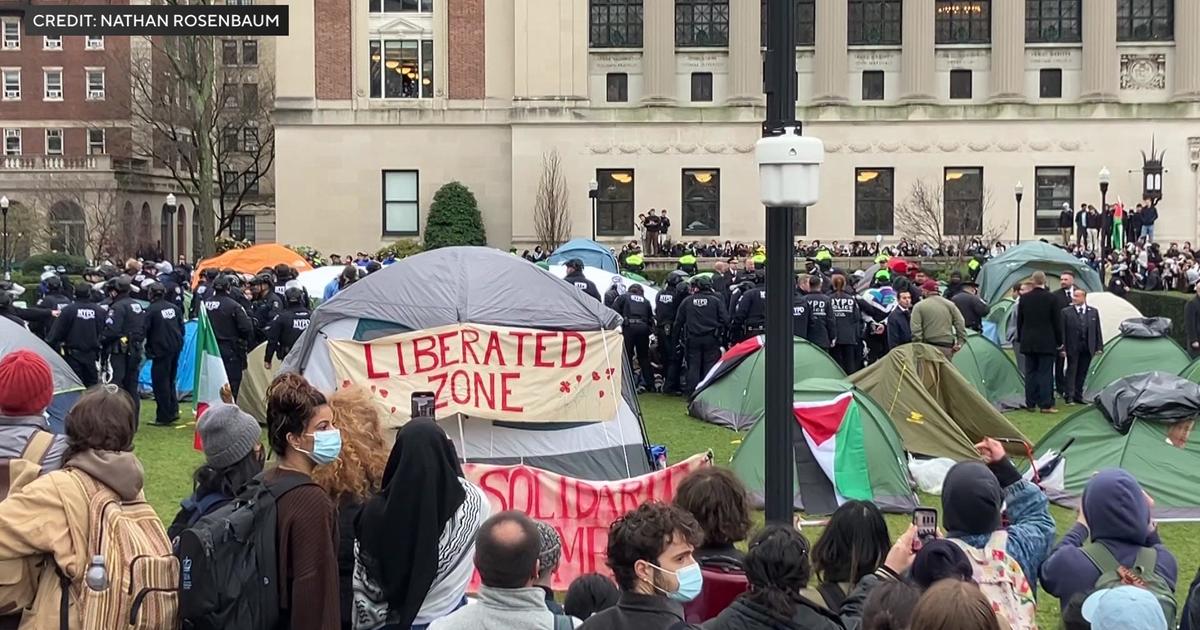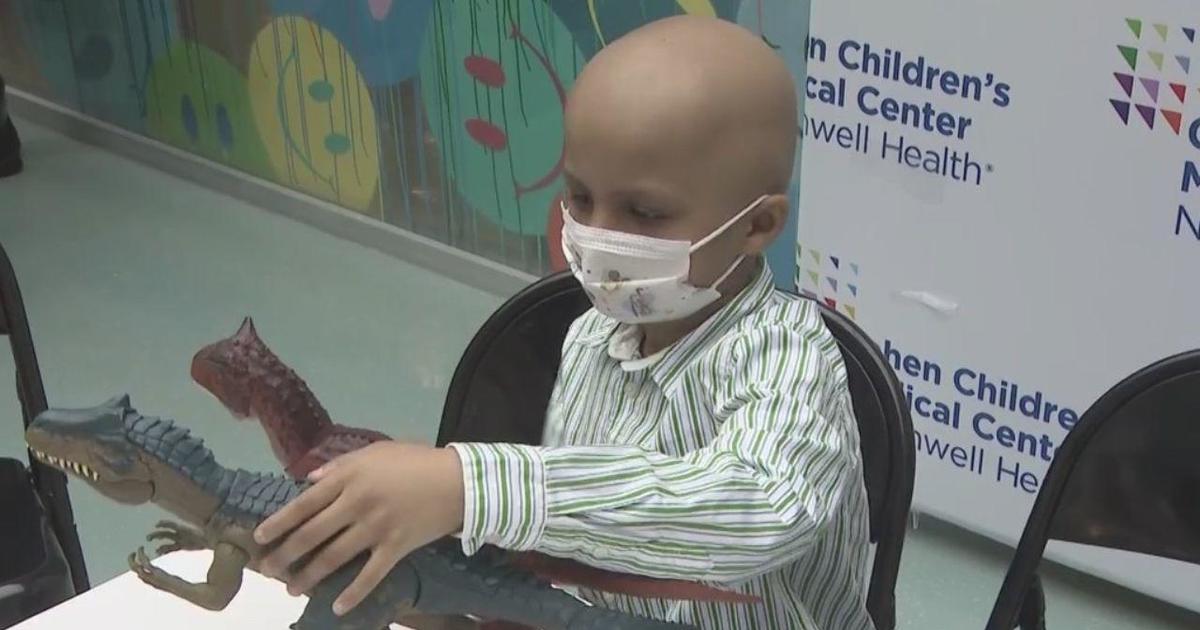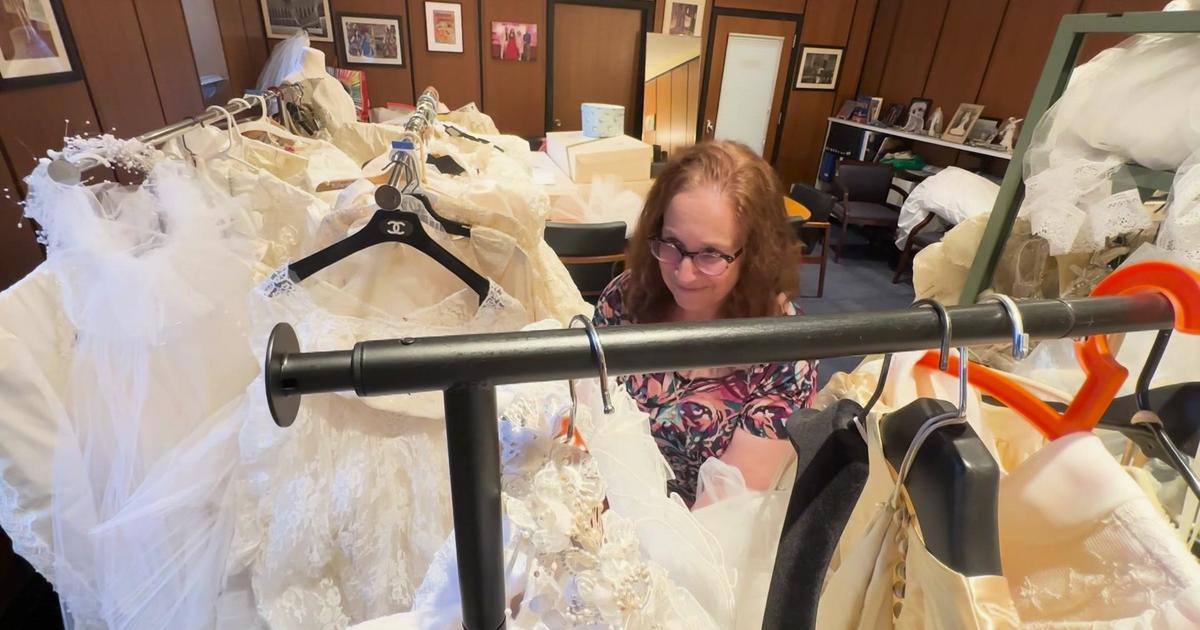American Flag Raised Over U.S. Embassy In Cuba; Sen. Menendez Calls It 'Shameful'
HAVANA (CBSNewYork/AP) -- The Stars and Stripes rose Friday over the newly opened U.S. Embassy for the first time in 54 years, making a symbolically charged victory lap for the Obama administration's new policy of engagement with Cuba.
Some waking as early as 6 a.m., hundreds of Cubans gathered outside the embassy for what they universally called a historic day. Cuban TV carried the event live, broadcasting flattering biographical facts about Secretary of State John Kerry and interviews with Cubans who praised detente with the U.S. as a necessary and positive step for their country.
Cuban dissidents were not invited to the embassy ceremony, avoiding tensions with Cuban officials who typically boycott events attended by the country's small political opposition. The State Department said it had limited space at what it called a government-to-government event, and invited dissidents to a separate afternoon flag-raising at the home of the embassy's chief of mission.
Photo Gallery: John Kerry Opens The American Embassy In Havana
Giant Cuban flags hung from the balconies of nearby apartment buildings and people gathered at windows with a view of the embassy.
"I wouldn't want to miss it,'' Marcos Rodriguez, 28, said as he waited outside the embassy. He said he and thousands of other on the island were hoping the opening with the U.S. will bring "social and economic benefits for all Cubans.''
High-ranking Cuban officials, U.S. business executives and Cuban-Americans who pushed for warming with Cuba gathered inside the former U.S. Interests Section, newly emblazoned with the letters "Embassy of the United States of America.''
Cuban-American poet Richard Blanco, who read a poem at Obama's second inauguration, was to read a new work before three Marines who lowered the flag at the embassy's closing in 1961 return to raise the Stars and Stripes again.
Listen: Sen. Bob Menendez Talks To WCBS 880's Steve Scott About Cuba, Flag
NJ Sen. Robert Menendez issued a statement about the flag raising Friday and called it "shameful."
"A flag representing freedom and liberty will rise today in a country ruled by a repressive regime that denies its people democracy and basic human rights. This is the embodiment of a wrongheaded policy that rewards the Castro regime's brutality at the expense of the Cuban people's right to freedom of expression and independence," Menendez said.
"It is shameful that on the grounds of our embassy in Havana, the Cuban regime can dictate to the United States government who may or may not attend this ceremony. If dissent is denied in the courtyard of the U.S. Embassy, it will never be allowed anywhere in Cuba. These are not values I associate with the United States. This is a one-sided deal that is a win for the Cuban regime and a loss for the Cuban people. The U.S. Embassy in Havana will be a hollow one, with the Cuban government limiting our diplomats the freedom of movement. It will be diplomacy for show, not in practice. The United States' flag should only fly in Cuba when the island is free, when dissent is embraced, and when democracy is restored."
"Trying something different when you basically are not challenging the regime in any way is not really trying something different," Menendez told WCBS 880's Steve Scott.
Kerry was then scheduled to meet with Cuba's foreign minister, the country's Roman Catholic archbishop and, separately, a hand-picked group of dissidents.
Among those gathering in front of the U.S. Embassy in Havana were the drivers of three 1950s-era Chevrolets parked outside the building.
Julio Alvarez, head of the custom cab company that operates them, said the State Department had invited him to send them without saying why, but he hoped that Kerry will take a ride in one.
Soon after Kerry heads home Friday evening, the Cuban and U.S. diplomats who negotiated the embassy reopening will launch full-time into the next phase of detente: expanding economic ties between the two nations with measures like re-establishing direct flights and mail service.
The Americans also want to resolve billions of dollars in half-century-old American claims over property confiscated after the Cuban revolution. Cuba has its own claims, as noted in a newspaper column by Fidel Castro on Thursday saying the U.S. owes the island "numerous millions of dollars'' for damages caused by the embargo.
"We have diplomatic relations; now we can get to the real work,'' said Wayne Smith, a retired U.S. diplomat who witnessed the closing of the U.S. Embassy in 1961, served in Cuba under President Jimmy Carter and returned this week to attend Friday's ceremony.
Obama and Raul Castro announced on Dec. 17 that they would re-establish diplomatic ties 54 years after the flag was taken down from the embassy overlooking Havana's seaside boulevard, the Malecon.
Obama also said he would be moving to empower the Cuban people by loosening the U.S. trade embargo on Cuba through a series of executive actions that make it easier for American citizens to travel to the island and trade with its growing class of private business owners.
Eight months later, Havana has repeatedly demanded a complete lifting of the embargo. It has not responded to Obama's actions with measures that would allow ordinary Cubans to benefit from them, such as allowing low-cost imports and exports by Cuban entrepreneurs looking to do business with the U.S.
"I think we're ending one phase and entering another,'' said Robert Muse, a U.S. lawyer specializing in Cuba. "The handshakes, the fraternal regards, the raising of the flags, that'll end on Aug. 14. Then I think it's very particular conversations begin.''
While Cuba has increased its highly limited Internet access since Dec. 17 in a measure U.S. officials partially attribute to the warming with Washington, ordinary Cubans are growing increasingly impatient for concrete results from the new relationship.
"I'm optimistic but cautious,'' said Rolando Mendez, a state worker walking outside the embassy. "We have to wait and see how events develop and if there really will be benefits for the two peoples.''
The U.S. tried several times to hold discussions with Cuban officials about the details of Obama's loosening of U.S. regulations, but those meetings never happened amid the pressure to strike a deal allowing the reopening of embassies in Havana and Washington on July 20.
U.S. diplomats say that such a meeting, which will hopefully lead to a real increase in trade with the U.S., is among the top priorities of the normalization talks expected to start in earnest in coming weeks.
Kerry said in a series of interviews with Spanish-language press Wednesday that the day would move the U.S.-Cuban relationship into a series of detailed talks about topics including "law enforcement, maritime security, education, health, telecommunications.''
"We will talk very directly about a sort of road map toward real, full normalization,'' Kerry said.
(TM and © Copyright![]() 2015 CBS Radio Inc. and its relevant subsidiaries. CBS RADIO and EYE Logo TM and Copyright 2015 CBS Broadcasting Inc. Used under license. All Rights Reserved. This material may not be published, broadcast, rewritten, or redistributed. The Associated Press contributed to this report.)
2015 CBS Radio Inc. and its relevant subsidiaries. CBS RADIO and EYE Logo TM and Copyright 2015 CBS Broadcasting Inc. Used under license. All Rights Reserved. This material may not be published, broadcast, rewritten, or redistributed. The Associated Press contributed to this report.)



